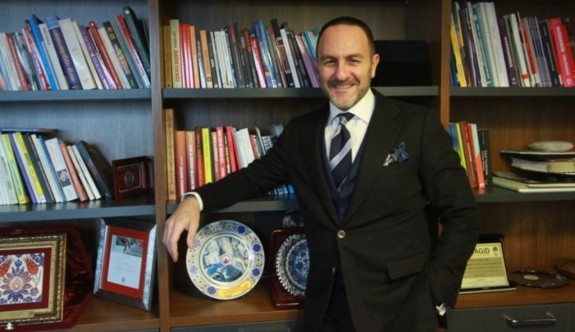While you read these lines, I am most likely delivering the opening speech for the international conference themed “Technology, Development, and Sustainability,” hosted by Topkapi University. Together with dozens of academics we have invited from MENA, namely the Middle East and North Africa countries, we will seek solutions to the region's problems.
Let me get straight to the point: As someone who is engaged in economic history and has written articles and books on the subject, I recognize that understanding the underlying philosophy of the approaches in the region and the background of the issues is as important as the outcomes themselves.
First and foremost, it is clear that liberal markets, or free markets, require liberal democracy as a prerequisite. This is because liberal democracy and liberal markets place free will at their center.
What I mean by this is: Those of us who teach economics say that “equilibrium price and quantity are established at the point where supply and demand meet,” but we do not emphasize enough that this is created by the independent free wills of countless individuals.
Why is this important? Because the continuous intervention in the prices of goods and services, the wages that represent the price of labor, the rents that represent the price of land, and the interest or profit shares that represent the price of capital have become the fate of the region.
Why governments feel the need to intervene so much?
Even Turkey, which has had financial markets and democracy for more than a century, has experienced and continues to experience situations where free will encounters difficulties and strays away from free markets. It seems necessary to discuss whether this situation is fate or can be corrected through a revolution in mindset.
However, before doing so, we need to question why governments feel the need to intervene so much, from central banks to regulatory authorities.
We have to admit that institutions that appear to be independent only on paper cannot produce anything more than non-functional models. Naturally, regulations made by powerless institutions end up being merely recommendations.
 The fundamental reason for the instability experienced throughout the region is that mechanisms, institutions, and markets established with a liberal understanding do not function in MENA countries that are not genuinely liberal - Emre Alkin
The fundamental reason for the instability experienced throughout the region is that mechanisms, institutions, and markets established with a liberal understanding do not function in MENA countries that are not genuinely liberal - Emre Alkin
Perhaps the fundamental reason for the instability experienced throughout the region is that mechanisms, institutions, and markets established with a liberal understanding do not function in MENA countries that are not genuinely liberal.
Constant interference disturbs the balance of relative prices and ultimately leads to phenomena such as inflation, increased cost of living, high credit costs, struggling businesses, and unemployment—this is the most common cycle that can be observed.
Radical changes and resistance
As is the case everywhere, the development of financial institutions in the MENA region seems to be shaped by the historical, political, and economic dynamics of the region.
From a period with almost no concept of private ownership to colonialism; from the period of independence to modernization; from globalization to digitalization and fintechs, this region has witnessed quite radical changes and, of course, resistance.
The conflict between state capitalism and private enterprise continues
It wouldn’t be wrong to say that the conflict between state capitalism and private enterprise continues. I speak of a geography where there are still hesitations in integrating women into the economy, where there is a distant approach to science, and where there is a prevalent eagerness to become rich quickly, often by aligning with politics.
When I observe that those who attain authority and wealth often do so through loyalty or servility rather than merit, it becomes evident that most universities in the MENA region are viewed as diploma factories. This is a harsh but true reality.
Unfortunately, MENA is a place of endless conflicts, unsolvable problems, and unceasing bloodshed. As Amin Maalouf stated, “The West extinguished the lights in the Ports of the East one by one, and thus the world drifted away from civilization.”
I hope this conference held in Istanbul produces results that will light up these beautiful ports one by one again.